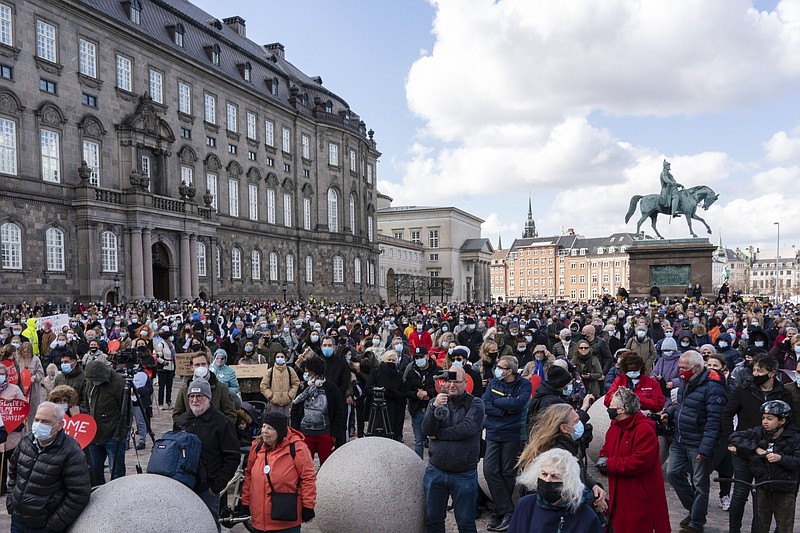COPENHAGEN, Denmark -- An email brought Faeza Satouf's world to a standstill.
The 25-year-old Syrian refugee fled the civil war with her family in an all-too-familiar journey across the sea to Europe, where they finally arrived in Denmark and were granted asylum in 2015. Yet, six years later, she was being told she had to go back -- alone, and soon.
Ten years after the start of the uprising against Bashar al-Assad's regime, Denmark has become the first European country to start revoking the residency permits of some Syrian refugees, arguing that the Syrian capital, Damascus, and neighboring regions are safe. Yet few experts agree with Denmark's assessment.
"There are no laws in Syria that can protect me like here in Denmark," Satouf said with palpable anxiety. "My father is sought after in Syria, so of course I will be arrested upon my return."
In the past six years, Satouf has learned Danish, graduated from high school with flying colors and is now studying to be a nurse while working in a supermarket. She can't understand why a country that encouraged integration and which needs nurses amid a pandemic would expel her and others, mainly women.
For now, the decision affects only people from certain areas of Syria who got their initial asylum because they were fleeing civil war. It doesn't include those who can prove a specific threat to their lives, such as men who could face conscription into Assad's army.
"This is very much down the line of gender," said Satouf's lawyer, Niels-Erik Hansen. "When I have a male client, I will send him right away to the Immigration Service and he will get asylum within three weeks. A female client will get rejected ... and we will have to take this case to the refugee board. So when I look into the pile of cases that I'm representing at the board, it's like 90% women and 10% male."
Because Denmark has no diplomatic relations with Syria, those who refuse to leave the country cannot be sent to Syria. Instead, they are sent to deportation centers, separated from family, unable to work and withdrawn from education programs.
Single women are likely to be sent to the Kaershovedgaard deportation center, a remote complex of buildings about 185 miles west of Copenhagen. Access is strictly limited, but Red Cross photos show rudimentary infrastructure where cooking is banned and activities are restricted. Even Danish language lessons are not allowed.
"It is like a prison, but they are allowed to go out in the daytime," said Gerda Abildgaard, who has visited the center for several years for the Red Cross.
The policy is the product of a left-wing Social Democratic-led government, whose immigration stance has come to resemble that of far-right parties after years of large migrations peaked in 2015 with 1 million arrivals in Europe. The large numbers of people coming from Africa and the Middle East energized populist movements across the continent, pushing parties that had a more welcoming position to embrace stricter policies.
It's a dilemma that Democrats are facing in the U.S., as a surge of young migrants at the Southern border tests President Joe Biden's campaign promise to accept more refugees than in the Trump era.
Though the numbers of asylum-seekers in Denmark have since plummeted, particularly during the pandemic, Prime Minister Mette Frederiksen reiterated in January a vision of having "zero asylum-seekers."
The Danish government argues that it made clear to the Syrians from the beginning that they were being offered only temporary protection.
"It's a cornerstone of our legislation ... that you get temporary protection, and as soon as you don't need protection anymore, you will have to leave Denmark," said Rasmus Storklund, a Social Democratic lawmaker and member of Parliament's Immigration and Integration Committee.
Standing in front of the deportation center's heavy gates, Abildgaard pleads: "But is Syria safe again? It's only Denmark who says that. All the other European countries don't say that. Only Denmark."
This week, experts who contributed to reports on which the Danish authorities based their assessment condemned that conclusion, warning in a statement published by Human Rights Watch that "conditions do not presently exist anywhere in Syria for safe returns."
Information for this article was contributed by Jan M. Olsen, Zeina Karam and Vanessa Gera of The Associated Press.




